RELATED: Best Project Management Systems With Salesforce | Project Management Systems With Budgeting | Outlook Integration & Project Management Platforms
Project management is a versatile discipline whose teeth cuts into different industries including construction, aerospace, and other massive projects you see around.
In actuality, there is no successful mega-project without adequate project management integration.
More recently, however, project management has formed the core of a wider variety of applications in different industries.
Nowadays, we find its usefulness in tasks ranging from marketing to events planning, and information technology, among others.
As such, proponents of project management, including the bid to ensure optimal agility, have made their mark in developing software where infusing project-based creativity in terms of speed, accuracy, and innovation becomes essential.
Therefore, at first, you might not see clearly where project management applies to your daily routine as the manager of a manufacturing company or factory.
You might say producing a product is not the same as a project.
And you will be correct.
But did you know that you can do more with certain project management tools/software?
Essentially, time-saving, cost-cutting, and quality assurance can be further ensured by adopting the right project management tool.
This is the primary essence of this text- to discuss the various project management software you can apply in the manufacturing sector.
Upfront Conclusion
The best project management software for manufacturing right now is Zoho Projects and Wrike
Software solutions in the manufacturing industry
Everything around us concerns changing an existing process, creating a new thing, or pulling off a one-time task.
Typically, these are projects.
While a product is not entirely a project, the process of bringing it to life is.
In the same manner, when you engage in the construction of a new facility for your firm, you are executing a project.
Many case studies demonstrate the scope of the change that an excellent project manager can introduce into manufacturing.
That is, whether it concerns creating a new thing, or implementing a novel organizational culture, you have a role as the project manager to keep the schedule and budget in shape, among other things.
You are also responsible for identifying and managing risks, benefits, and change as well as ensuring effective communication among stakeholders.
So, as a manufacturer, you can equally be a project manager to bring this new idea to life or improve on existing ones.
Save your company the hassle of hiring a project manager by simply mastering the different project management tools that apply to your industry.
- Project Management Software For Marketing Teams
- Enterprise Project Management Software
- Project Management Software For Quality Assurance
- Project Management Software for Reporting
- Project Management Software with QuickBooks Integration
- Open Source Project Management Software
- Project Management Software For Daily Activities
- Free Project Management Software
- Project Management Software For Outsourcing
- Project Management Software For Nonprofits
- Project Management Software For Small Teams
- Project Management Software for Startups
- Project Management Software With Email Integration
- Project Management Software for Multiple Projects
- Project Management Software For Intuitive Small Businesses
- Monday.com vs. Meistertask
- Clickup Microsoft Project
- ClickUp vs. Airtable
- ClickUp vs. Dubsado
- Monday.com vs. Smartsheet
- Monday.com vs Freshdesk
- ClickUp vs Asana
- Monday.com vs Basecamp
- Monday.com vs. CoConstruct
- Monday.com vs Workfront
- Monday.com vs Sharepoint
- Clickup vs Teamwork
- Monday.com vs Microsoft Project
- Monday.com vs Scoro
- Monday.com VS Github
- Why Use Project Management Software?
- Is it Difficult to Use a Project Management Software Well?
- What Is Project Management Software?
- Who Invented Project Management Software?
- How To Use Project Management Software?
- What is “Portfolio” in Project Management Software?
- What Are Some Unique Features of Project Management Software?
- What to Look for in Project Management Software?
- How Much Does Project Management Tools Cost?
- What Is The Most Popular Project Management Software?
- How Much Does Project Management Software Increase Productivity?
- What is The Purpose of Project Management Software?
- What Is FreshWorks & What Does It Do?
- Can Asana Be Used For Personal Use?
- What Does Workflow Management Software Do?
Why use Project Management Software for Manufacturers?
Manufacturing projects can be extensive, with several stakeholders and processes involved.
To ensure that the projects are completed on schedule, within budget, and with the appropriate quality standards, effective project management is essential.
From planning through execution and monitoring, project management software offers a comprehensive solution for managing all parts of a manufacturing project.
One of the primary advantages of project management software is that it facilitates communication.
A manufacturing project involves many different personnel. Project management software offers a centralized platform for all stakeholders to communicate and exchange information in real time.
This reduces mistakes, prevents misunderstandings, and speeds up decision-making.
Tip: ClickUp offers reporting and analytics tools that can help manufacturers track project performance, analyze production data, and identify areas for improvement.
What makes good Project Management Software for Manufacturers?
A good project management software for manufacturers should be capable of handling complex manufacturing processes and workflows, which usually includes multiple stages, departments, and teams.
The software should have features that help to streamline communication, such as automatic notifications, reminders, and alerts.
It should also be capable of in-depth project planning and scheduling, including the ability to make timelines, assign tasks, create deadlines, and track development.
Collaboration is another important feature that should allow all stakeholders, including suppliers, engineers, designers, contractors, and operators, to work efficiently together.
The software need to provide a centralized platform where all teams may communicate and exchange information anytime.
By doing so, you can avoid misunderstandings, cut down on mistakes, and make decisions more quickly.
Tip: monday.com allows manufacturers to plan and manage their production processes through its project management tools.
How to choose the right Project Management Software for Manufacturers
To choose the right project management software for manufacturers, determine specific project management needs and analyze software aspects such as simplicity of use, integration capabilities, data security, scalability, user support, and pricing.
Manufacturers should also evaluate the software’s capacity to handle complicated processes, facilitate collaboration, reporting and analytics, quality control, and interact with other tools and applications.
In order to cope with future changes in the manufacturing operations, it is essential to pick software that is user-friendly and has strong security measures.
Manufacturers should also think about the cost and benefits the software will bring to their company.
Manufacturers can choose the best project management software for their needs by taking these factors into account.
Tip: Asana offers inventory management tools that can help manufacturers keep track of their stock levels, reorder products, and manage their warehouses.
Best Project Management Software for Manufacturers
There are many project management software/tools on the marketplace that can help you complete and meet client requirements, manage time, stay on budget, and manage scope constraints.
If chosen correctly, and according to the requirements of the respective organization, it offers a great deal of efficiency.
The features of this software are such that they apply to a vast amount of varying industry needs.
Generally, though, the software can be classified as any of the following:
1. Web-based software
Many project management software is web-based.
That is, they can be accessed from the Internet via a software-as-a-service (SaaS) subscription.
These tools are to meet the needs of businesses across different industries, including manufacturing.
They can be used in various locations and on different devices to get the as-is project status and information.
As of today, project management programs are becoming increasingly flexible and enriched with many features that can allow for necessary and healthy competition with any enterprise system.
As a project manager, therefore, you can lay hold of any of these apps to visualize your tasks, manage the progress of your goal, automate workflows, communicate, and integrate with your colleagues via email.
2. On-premise software
These types of project management software are primarily situated on the company’s server.
The server is inside the data center and managed by IT-inclined employees.
For this, companies can buy a single license and with time, may need to get additional upgrades.
The reason you should consider on-premise software is to help allay security fears or concerns and also to cater to the long-term costs.
Ideally, when you run the software on the private server of your company, the company has full control over the data storage, as well as the security protocols to protect the data.
In this situation, if your enterprise has 50 or 100 or more users, you can save some monthly subscription costs by getting the one-time license fees with the on-premise software.
You can control when to schedule software updates to prepare for any downtime due to the update of the system.
3. Integrated and best-of-breed software
As of today, many project management software includes different features and tools to help manage a wide variety of business scopes.
Although, you can manage your projects with simple specialized software, too.
A best-of-breed software is especially for particular capabilities including scheduling, time tracking, and task management, among others.
On the other hand, integrated suite applications are a combination of many functions including Gantt charting, time tracking, and task management which you might want to do as a manufacturing firm.
Whether as a start-up or an existing one, no one enjoys using complex software.
A tool with fewer features that encompass basic functionality would suffice.
Although, larger organizations would naturally prefer to use integrated project management software for their complex projects.
Given the above categories, if you want;
- To manage your tasks; the best project management tools feature Gantt charts, waterfall dependencies, burndown charts, and visual task management in Kanban boards.
- To collaborate with your team and solve complex projects; use software for support documentation that helps existing team members troubleshoot issues with the software and learn them quickly.
Top 10 Project Management Software for Manufacturers
The following are some of the top-notch project manufacturing software for manufacturing:
1. Zoho Projects

Zoho Projects is a project management tool that can be used by startups, freelancers, enterprises, and SMEs.
Its features are email integration, mobile app, and task management, among others.
2. Wrike
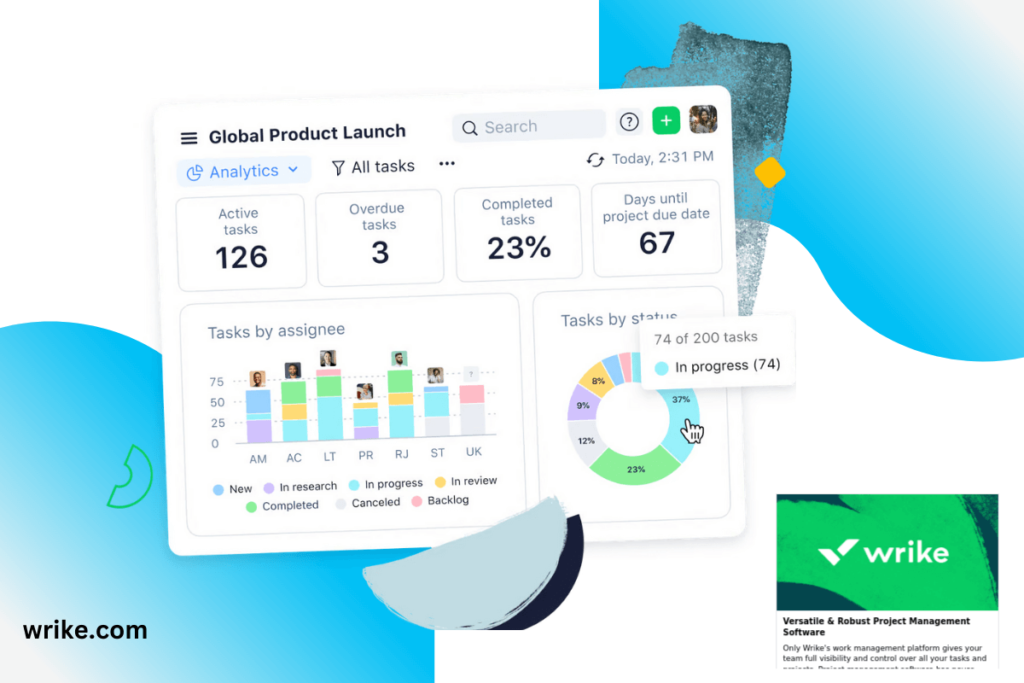
Wrike is available on Linux, Windows, and Mac platforms.
It is a project management system that is applicable in the manufacturing industry and offers great collaboration.
3. Focus 9
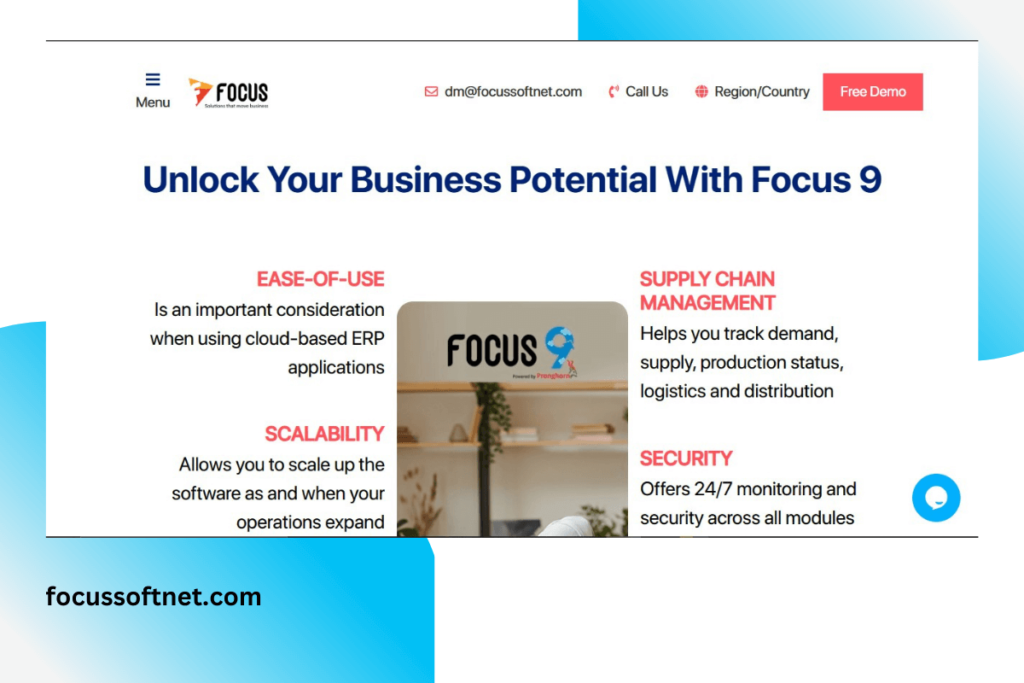
Focus 9 is a project management software with functions like audit trail, accounting, and budgeting.
It offers a one-time payment method with incredible usability.
4. Jira
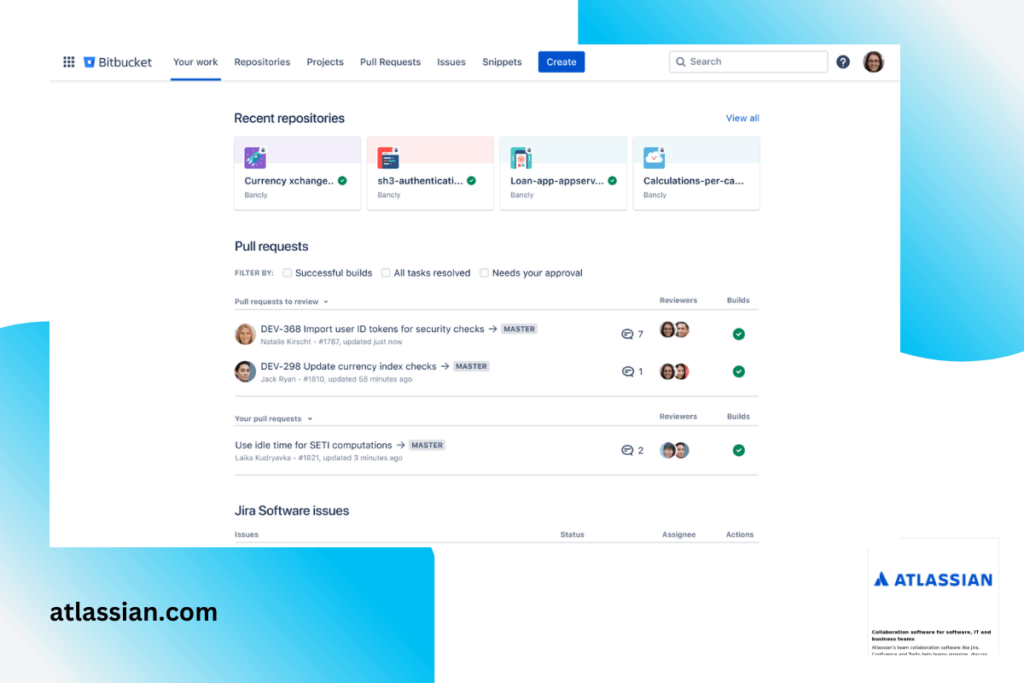
Jira is an application that serves businesses in different industries including manufacturing.
The tool usage is flexible and easy.
It has a free trial and monthly payment options, too.
5. Monday.com
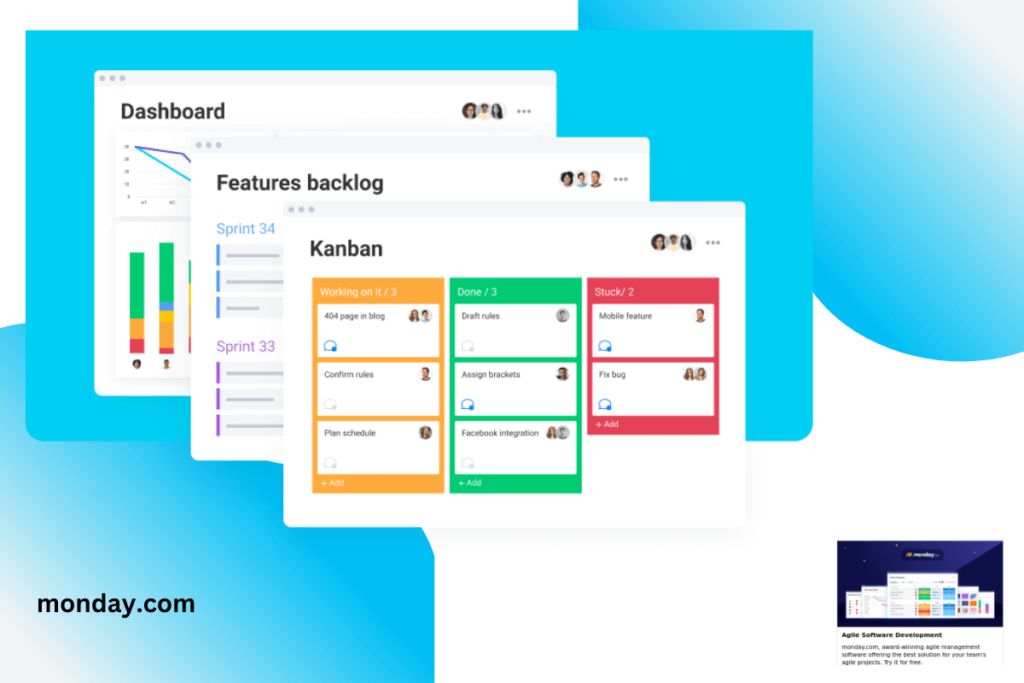
This is a cloud-based software with a vast number of features and functionalities including CRM, customer management, and asset management.
It is one of the top platforms for project management and is suitable for the manufacturing industry.
6. ProofHub
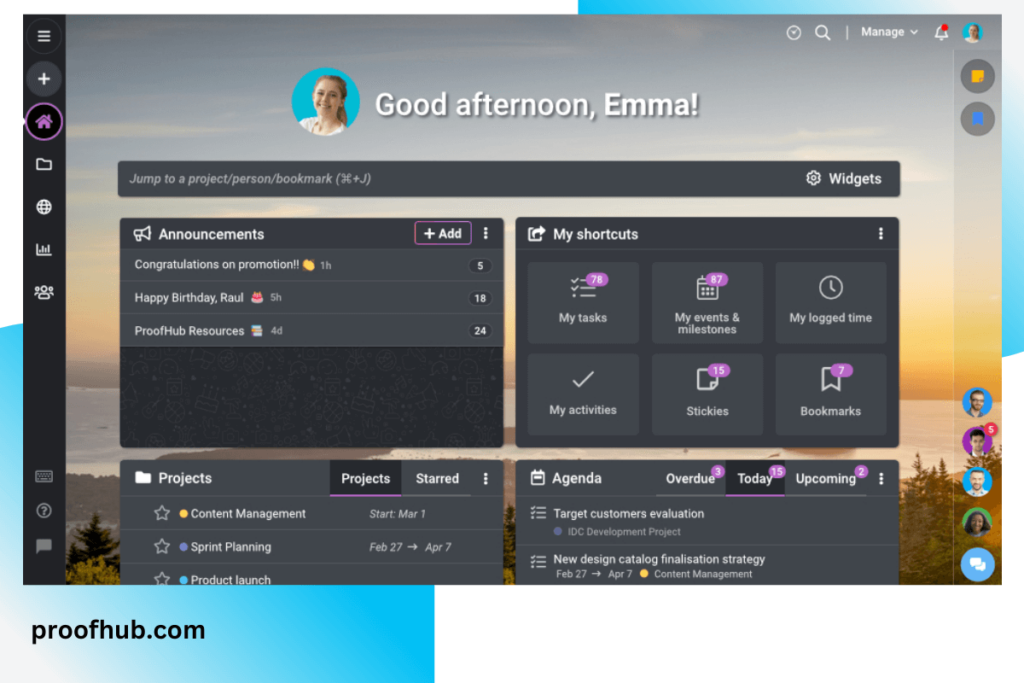
ProofHub is another cloud-based project management system specially designed for manufacturers.
Its features and fundamental modules include task management, time tracking, and email integration.
More on ProofHub, being a more prominent and applicable tool:
Given the complex nature of running a manufacturing enterprise, with countless things to take care of, you clearly cannot achieve much if you do not have access to the right technology. And this is what ProofHub offers.
ProofHub is a project management software for manufacturing organizations for increased efficiency.
The software provides a significant amount of versatility where all the people and units are brought together in a single place.
That is, it enforces hierarchy within the system as well as avoids sharing irrelevant information.
Also, ProofHub is a great tool to create a project plan- which is an integral aspect of any business.
In manufacturing, you want to plan things from the bottom up, and this is where the tool becomes handy- to the rescue.
You can use the option of distributing your work with Workflows and Kanban boards where you typically divide your manufacturing process into different stages of ideation, manufacturing, packaging, and delivering.
Moreover, ProofHub allows you to track time and deliver your consignments on time as you can set an estimated time for the different tasks so that the owner of the task knows when to deliver.
Here, you can use ProofHub’s Gantt Chart to set the dependencies between the tasks and make everyone accountable for delivering within the set deadline.
Likewise, you can use the platform to write notes, upload files, and keep your information intact- which you can integrate with Google Drive, OneDrive, and DropBox.
Other interesting features include saving the date and getting the work done on time, monitoring the performance of your teams, and reviewing and approving deliverables on time.
7. Taskworld

Taskworld is a project management tool that is suitable for small and medium enterprises, startups, and others in the manufacturing industry.
The user interface is rich, and it supports English, French, German, Swedish, and other forms of customization.
8. Freshservice
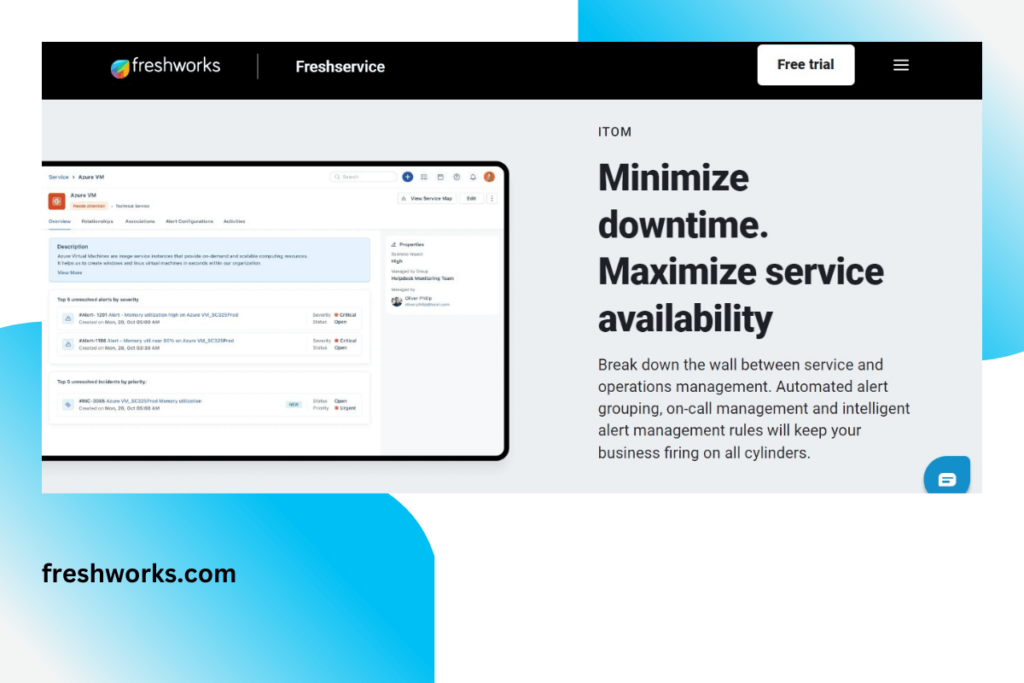
Freshservice is a project management software that is suitable for different applications and can be deployed on the cloud.
It is one of the best tools to streamline IT service delivery.
9. NetSuite Manufacturing
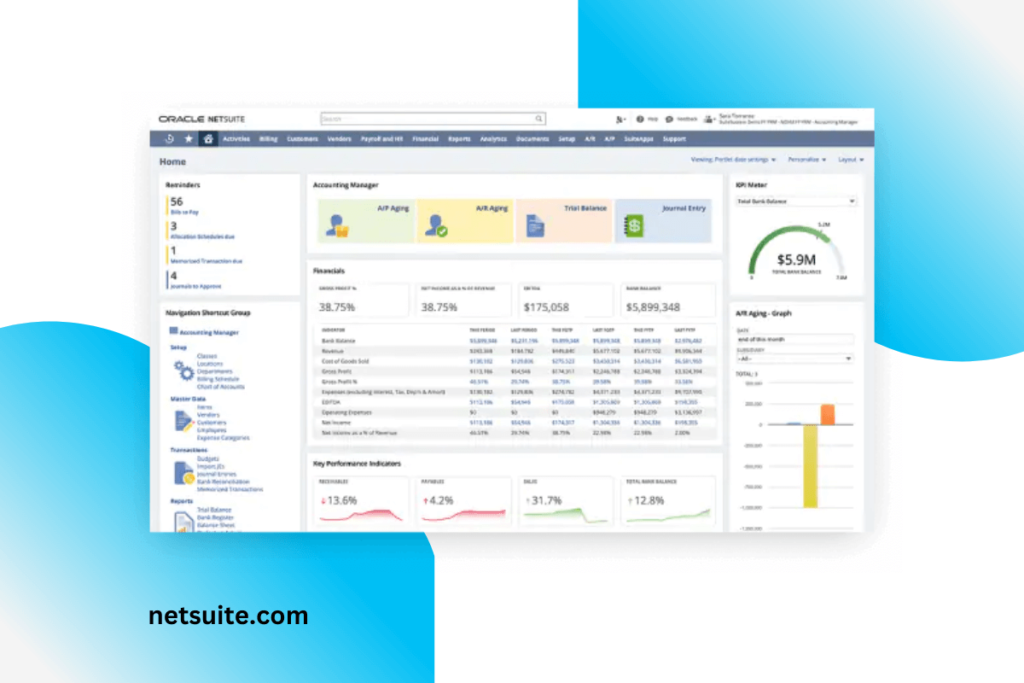
There are some manufacturing solutions on Oracle’s NetSuite platform.
This factor alone makes it one of the best project management tools and ERP software options for manufacturers.
A cloud-based tool that can handle every detail of the manufacturing process, NetSuite is notable for customer relationship management, better production planning based on the balance of supply and demand, and efficient procurement and supply chain control.
10. mantra
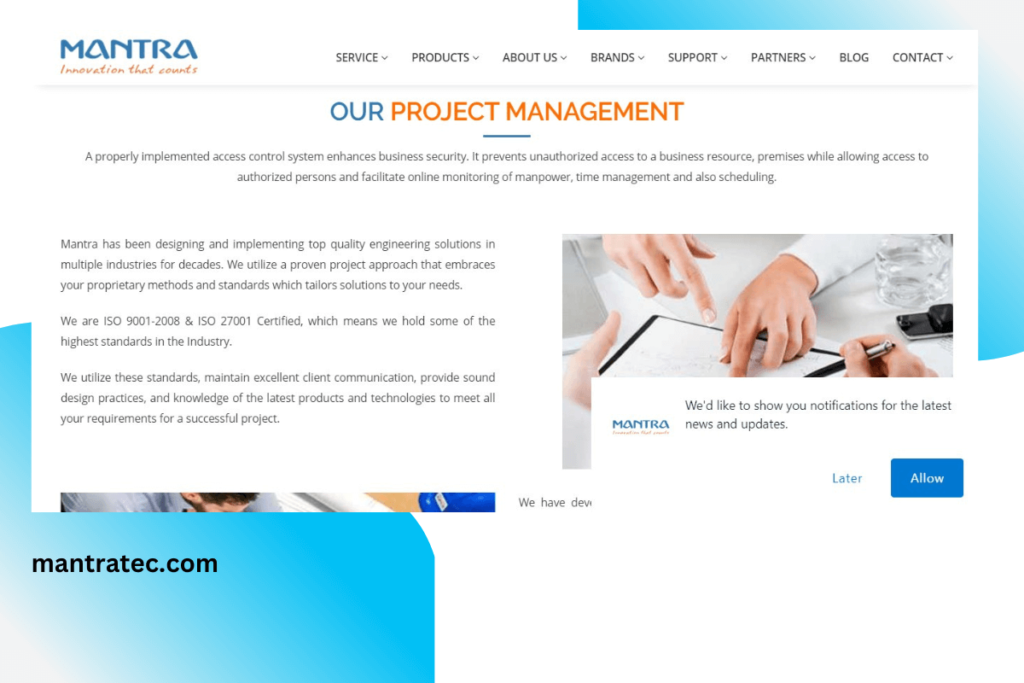
This is another versatile project management software suitable for the manufacturing industry.
Every growing organization needs this to help with its asset management, attendance management, audit trail, and other things.
11. WebWork Time Tracker
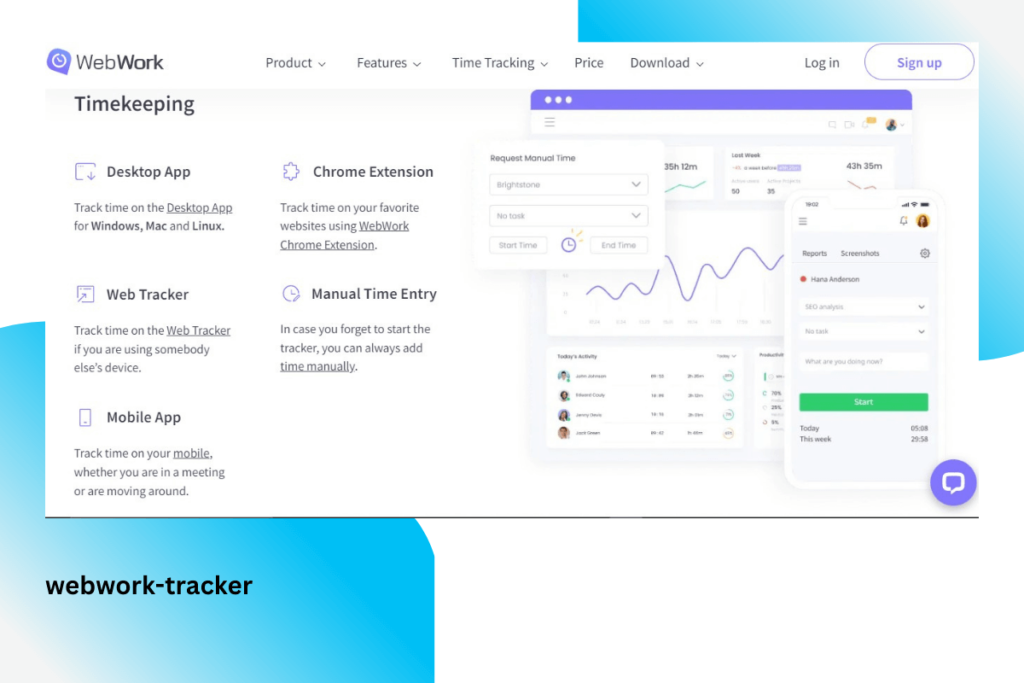
This is a project management system considered the number one tracking software to help manufacturers keep track of activities, deliveries, and teams.
It is available on different platforms including Android, iOS, Windows, and Mac.
12. GanttPRO
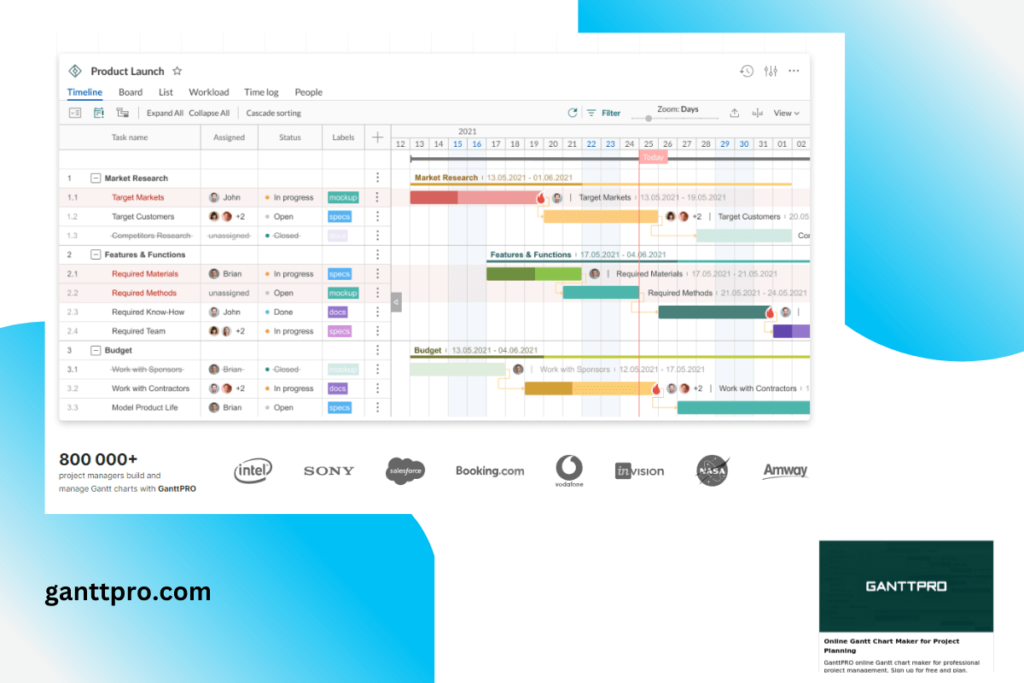
This is a cloud-based project management software with a broad range of solutions including project management, task management, and data imports/exports.
Manufacturing versus Project Management
So, having known these things, with more emphasis on ProofHub, there is no gainsaying that manufacturers are themselves familiar with project management, and they are aware of the fact that they can get things done better by incorporating project management methodologies.
After all, Kanban, Lean, or Six Sigma all originate from manufacturing.
More so, given the numerous pain points and challenges that the manufacturing industry is experiencing, including schedule, cost, scope, and quality, the biggest of these problems are how they can produce a high-quality product in the shortest time possible.
That way, they can gain a competitive advantage, keep the scope of production in check, and the costs relatively low, too.
But these feats can only be achieved by applying the right principles and methodologies, especially as obtainable from project management software suitable for the manufacturing industry.
Buying considerations for manufacturing firms
The following are some of the things you should consider to buy project management software for your company:
1. Integrations
As a 21st-century manufacturing company, you are bound to survive on automation.
Also, with connected apps.
Therefore, whether the tool is embedded in an ERP or business process management system, or is a standalone solution, you need to look out for integrations.
With API connections and other necessary plugins, you can ensure that key information flows swiftly and on time into the project management tool and out.
2. Reporting and analytics
These features play a huge role in the software being considered useful.
Essentially, these features identify the bottlenecks in the manufacturing processes and give indications of the required efficiencies.
Therefore, you have to check if your tool can integrate seamlessly, and is compatible with the system.
3. User Controls
More often than not, data safety and security are sensitive matters that should not be taken lightly.
Nonetheless, an enterprise company seeking the perfect project management solution should pay attention to how the software offers administrative authority over access to the required factors.
Conclusion
In a nutshell, taking a product from the stage of conception to production is very complicated.
There are a lot of things at stake- as things can go wrong along the way ranging from time-to-market, quality control issues, supply chain concerns, and product development itself, among others.
Now, imagine teams still managing all of these processes with some static spreadsheets.
Project management comes in handy here, and there are tons of tools that you can use or should start incorporating into your production today.
Any of the aforementioned software would help and enhance the establishment of requirements, choosing a methodology, using a project management tool to get a good grasp of the requirements and goals to build a schedule, creating a budget, tracking your progress, managing your stakeholders, and resources, and ensuring that you meet up with the stipulated completion time in terms of scope and budget.
